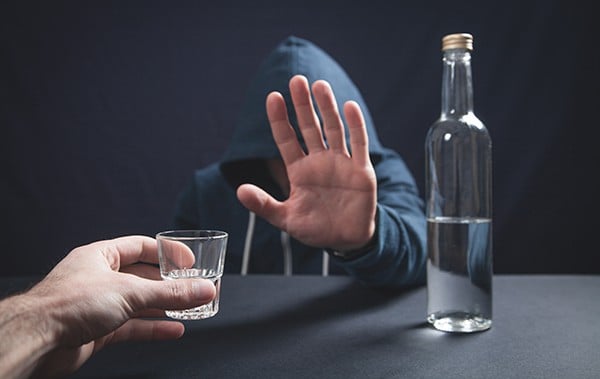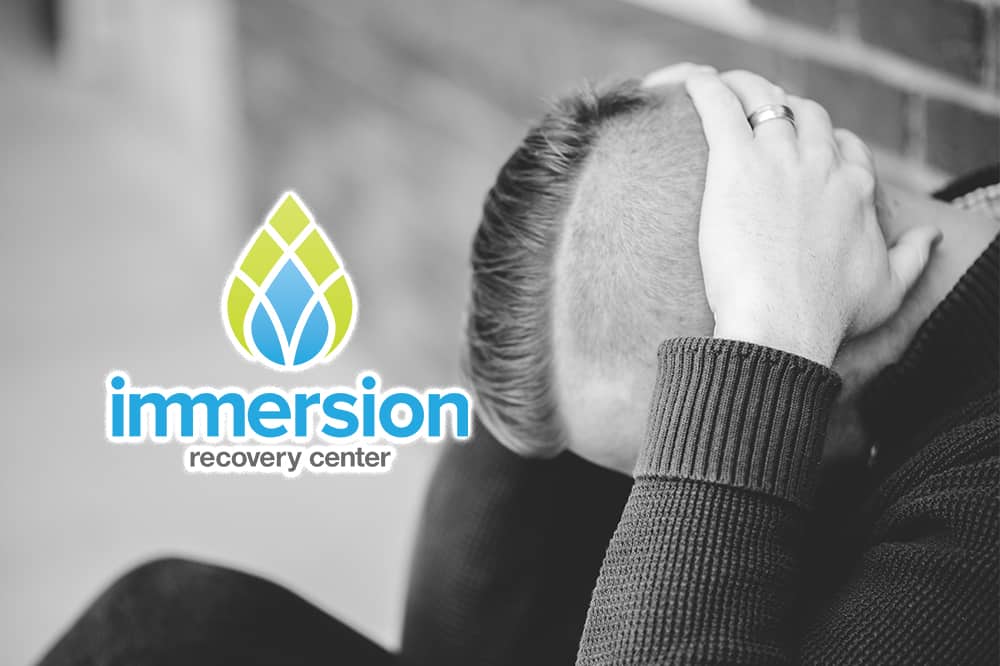Alcohol Detox
Is it Safe to Detox From Home?
Is it Safe to Detox From Home?
Alcoholism is one of the most significant public health threats that Americans currently face. According to the National Institute on Alcohol Abuse and Alcoholism, 25.8 percent of men and women over the age of 18 admitted to engaging in binge drinking at least once over the course of the past month. The 2019 National Survey on Drug Use and Health suggested that roughly 14.5 million Americans over the age of 12 suffered from a diagnosable alcohol use disorder. This equates to over 5 percent of the total population. During the same year, only 7.2 percent of people suffering from an alcohol use disorder sought any type of professional treatment. An estimated 95,000 men and women lose their lives to excessive alcohol consumption and other alcohol-related issues on an annual basis.
Why do so many of the people who clearly need professional help for alcohol abuse and alcoholism fail to seek any level of care? In many cases, it is because they believe that they can handle their alcohol use on their own. They might believe that they can stop drinking if they have a legitimate reason to do so, or that because they haven’t yet suffered severe personal consequences as a direct result of their drinking habits, there is really nothing to worry about.
If you have been engaging in excessive alcohol consumption or if you are concerned that heavy drinking might have the potential to develop into a serious alcohol problem, you might be tempted to try detoxing from alcohol at home. However, if you make the decision to stop drinking heavily and attempt to quit “cold turkey,” there is a very good chance that you are going to experience some degree of withdrawal. Because alcohol withdrawal can be unpredictable and has the potential to lead to life-threatening health related complications, you should never attempt to detox from alcohol at home — even if you feel confident that you can do so safely.
We Are Here For You
Let Us Help You Heal
Our detoxification experience is second to none.
Learn how we can help by speaking with one of our Treatment Advisors today.
About Alcohol Withdrawal
The severity of the withdrawal symptoms you experience depends on several factors, including how long you have been drinking, how much you drink on a daily basis, whether or not you have any pre-existing health conditions and whether or not you have previously detoxed from alcohol.

If you have been drinking a good amount on a daily basis, symptoms of withdrawal are likely to begin at around 6 hours after your last drink. These symptoms will likely peak in severity at between two and three days, and resolve entirely within one week. A standard alcohol detox timeline looks like this:
- 6 hours: People who have been suffering from a mild or moderate alcohol use disorder will begin feeling minor withdrawal symptoms within the first 6 hours of the last drink. These symptoms might include a headache, stomach cramping and nausea, general feelings of physical discomfort and restlessness. A person who has been struggling with a severe alcohol use disorder is liable to experience more severe symptoms at around the 6 hour mark — which could include seizures.
- 12 to 24 hours: At around this time the mild withdrawal symptoms begin to escalate. A person who is undergoing alcohol withdrawal might start to experience hallucinations at around this time. Auditory and visual hallucinations are not always associated with delirium tremens — even a person who has been struggling with a moderate alcohol use disorder can experience this disorienting withdrawal symptom.
- 24 to 48 hours: Minor withdrawal symptoms continue to worsen in severity. Headaches intensify, nausea, vomiting and diarrhea begin and body tremors intensify. During this stage of the alcohol withdrawal process a person often requires medical intervention. This is why entering into a medical detox facility is so important — the majority of these symptoms can be alleviated with medication. The symptoms must also be closely monitored by a team of medical professionals to ensure they don’t worsen or lead to any serious and potential life-threatening complications.
- 48 to 72 hours: During this period of time withdrawal symptoms peak in severity. A person who has been struggling with a moderate or severe alcohol use disorder might experience a dangerously spiked heart rate, increased body temperature and seizures. Psychological symptoms intensify as well, and the person might experience extreme anxiety, panic attacks, depressed mood and suicidal ideation. If the alcohol use disorder was mild, minor or moderate feelings of physical and psychological discomfort persist.
- 72 hours and beyond: Withdrawal symptoms tend to peak at 72 hours and then taper off. However, if a person does not seek clinical care in a medical detox facility, symptoms of post-acute alcohol withdrawal can persist for months after acute withdrawal subsides.
Our Treatment Services Include
Symptoms of Alcohol Withdrawal
Alcohol is a central nervous system depressant. Consuming alcohol in small amounts leads to feelings of relaxation or increased pleasure. However, consuming large quantities of alcohol over an extended period of time actually changes the chemistry of the brain. The central nervous system essentially goes into shock when alcohol is taken away, which leads to physical and psychological symptoms of withdrawal. The most common symptoms associated with alcohol withdrawal include:
- Uncontrollable shaking and body tremors
- Increased heart rate and increased blood pressure
- Extreme anxiety and panic attacks
- Nausea, vomiting and diarrhea
- Severe stomach cramping
- Profuse sweating/night sweats
- Insomnia and other sleep-related issues
- Mood swings, often characterized by irritability and agitation
If you have been drinking on a daily basis for a prolonged period of time, you are at risk of experiencing delirium tremens (DTs) — a severe form of alcohol withdrawal. People who experience DTs begin hallucinating. They become extremely paranoid, and they run the risk of having grand mal seizures (which can be life-threatening if left untreated). This is one of the many reasons why you should never attempt to detox from alcohol at home. If you do have a seizure and there is no one around to help you through it, you could lose your life.
Ready To Begin Your Treatment?
Let Us Help Your Family Heal
Our family therapy program is second to none.
Learn how we can help your family by calling a Treatment Advisor now.
Others Reasons to Consider Medical Detox
Alcohol withdrawal is certainly not a fun process to undergo. In fact, many people continue drinking in order to avoid withdrawal. Of course if you want to overcome an alcohol abuse disorder there is no way to avoid undergoing withdrawal. There is a way to make the process as pain-free and safe as possible, however. Entering into a designated detox facility might seem like an avoidable step. Simply stock up on ibuprofen and Gatorade and you’ll be able to undergo withdrawal in an at home setting, right? On the contrary, even someone suffering from mild or moderate withdrawal symptoms might need certain medications to ensure that the detox is safe and short-lived. Benzodiazepines are often utilized to prevent the more serious symptoms associated with alcohol withdrawal, including seizures. Medications like Xanax, Ativan and Valium might be prescribed in a medical detox setting and administered under the close care of a medical professional. Neuroleptic medications might also be prescribed for the prevention of seizures and other uncomfortable physical symptoms. If you are experiencing psychological symptoms like severe anxiety or depression, you will be given a short-term dose of an antipsychotic medication. In addition to around-the-clock medical supervision, you will have access to a range of amenities geared towards client comfort from private, well-appointed bedrooms to a fully stocked kitchen that is accessible to you 24/7.
Begin Healing Now!
Have A Call With One Of Our Treatment Advisors
Don’t Suffer Any Longer
Are You Ready to Detox From Alcohol?
Medical detox facilities do much more than effectively treat symptoms of withdrawal as they arise and provide clients with a comfortable withdrawal experience. They focus on preparing clients for the next appropriate step in the early recovery process. Case managers work with the treatment team and develop personalized aftercare plans which typically include an immediate transition into a residential inpatient treatment facility. Detox centers also introduce clients to therapeutic intervention and the 12-Step model and intensive behavioral therapy. If you are ready to overcome alcohol addiction and begin living the life you deserve, contact Immersion Recovery Center today.
Get Started Now
Give us a call 24/7
(888) 693-1604

Reviewed for accuracy by :
Susan Shirley
LMHC
Serving as the Inpatient Clinical Director at Immersion Recovery Center, Susan will work directly with staff members, clients, and family members to ensure the clinical program remains as effective and individualized as possible. Susan is no stranger to the fields of behavioral health and addiction. She has over 25 years of experience, working in an inpatient setting, an outpatient setting, acute stabilization and nearly all other settings in the realm of addiction recovery.






















